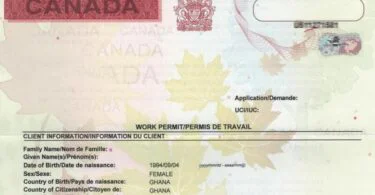Portugal is preparing to introduce stricter immigration rules that could make it more difficult for international citizens to obtain citizenship or reunite with relatives. The suggested modifications are part of the government’s broader strategy to manage migration flows and prioritize highly skilled individuals.
Table of Contents
New Immigration Technique Declared
On June 14, Antonio Leitão Amaro, Minister of the Presidency of the Council of Ministers, confirmed that Portugal’s nationality law will undergo a significant overhaul. While certain information remains unclear, the objective is to streamline the immigration process and facilitate the integration of international residents.
Major Modifications Anticipated
1. Longer Residency Conditions For Citizenship
Presently, immigrants can apply for Portuguese nationality after five years of lawful residence. Under the suggested modifications, this duration could be prolonged to 1 decade.
- The authority is deliberating on exempting the waiting duration between a residence permit request and its authorization from the total residency estimation.
- This action could hugely delay qualification for nationality.
2. Stricter Laws For Family Reunification
The Portuguese administration is also planning to tighten laws for family reunification, primarily for migrants from non-EU countries. The cited motive is the limited capacity of public services and the need for improved integration assistance.
- Candidates may be required to satisfy new language skill measures.
- Priority may be given to highly qualified international employees with in-demand experience.
Effect On CPLP Citizens And Brazilian Migrants
Portugal remains a significant location for citizens of the Community of Portuguese-Speaking Countries (CPLP), which includes Angola, Brazil, Mozambique, and Cape Verde.
These countries share historical and linguistic connections with Portugal, and their nationals have historically enjoyed easier access to Portuguese residency and work permits.
If you enjoy this article, don't miss out on the valuable insights and information available in our other related posts:
- Spousal Open Work Permits In Canada: All You Need To Know
- Canada Provides Visa Sponsored Egg-Packing Jobs To International Workers
- Schengen Access At Risk: EU To Tighten Visa-Free Travel Laws
- EU To Enable UK Nationals E-Gate Access, Ending Long Border Wait
- What You Need To Know About The Private Life Visa In The UK
Hence, the suggested limitations may primarily affect the Brazilian community, the largest international group in Portugal, many of whom relocate for employment prospects and later sponsor relatives.
Concentration On Enticing Skilled Talent
The authority has demonstrated that it intends to facilitate and maintain highly eligible immigrants, mostly:
- International experts with advanced certifications.
- Portuguese emigrants coming back from overseas.
- Descendants of Portuguese nationals.
This adjustment aligns with Portugal’s economic objectives, which focus on addressing labor market gaps without overwhelming social services.
Political Backdrop: A Renewed Authority
The declaration comes just as Prime Minister Luis Montenegro started his new tenure on June 15. Immigration policy change was one of his central campaign pledges, and the government is expected to move quickly on implementing these new standards.
What This Implies For International Citizens
If you are an international citizen making plans to settle or get employed in Portugal, below is what you are required to have in mind:
- Expect longer wait times to be eligible for nationality.
- Prepare for prospective language exams, especially if you are applying for family reunification.
- Prioritize upskilling, as Portugal is focusing on attracting highly educated or in-demand employees.
These modifications are not yet in progress; however, international citizens already in Portugal or planning to relocate are required to stay updated on official statements.
In conclusion, Portugal’s immigration reform marks a significant turning point for thousands of international citizens, primarily individuals seeking to naturalize or reunite with their families. With longer wait times and tougher certifications ahead, staying informed and prepared is more crucial than ever.
As the authority concludes its intentions, migrants, and employees are advised to closely monitor developments and consider seeking skilled immigration advice where relevant.





